Computing
Computing / ICT Aims
- Through computing, pupils are more able to actively participate in a rapidly changing technological world.
- Computing teaches pupils how to keep safe online, and where to go for help and support.
- Critical thinking and analytical skills are developed through computing.
Why is Computing / ICT important?
Through computing, we not only learn to use technology purposefully and effectively, but become aware of the underlying processes involved, helping us to understand how best to apply skills safely and ethically. Learning about control systems and robots increases awareness of many of the operating systems we use to manage our everyday lives.
The internet helps us to rapidly access ideas and experiences from a wide range of individuals, communities, countries and cultures. In computing, we develop essential skills for life in a digital age, learning to apply critical thinking and problem-solving skills.
When is Computing / ICT taught?
Computing / ICT is taught primarily linked to thematic units. The overview maps out which thematic units feature this subject and the Long-Term Plan clearly shows the objectives taught.
How is Computing / ICT taught?
Computing / ICT is taught through a combination of subject knowledge and development of specific skills and competencies. Learning takes place mainly inside the classroom.
What do we learn about in Computing / ICT?
We learn about the following:-
Programming
Networking
Sequencing
Multimedia
Data Handling
Presentations
Word Processing
Animation
Email
E-Safety
Computer-Aided Design
Research
Podcasts
Sound FX
How do we assess and monitor Computing / ICT?
Assessment is an ongoing process in the classroom as teachers observe pupils’ oral and written responses. Opportunities for assessment exist in medium term plans and are built into all activities. When a new unit is introduced the title and supporting materials are displayed to a class. Pupils use their existing knowledge to summarise what they already know about the topic and consider what will be taught. At the end of a unit pupils are encouraged to reflect on their learning against unit knowledge ladders. As a class a theme review sheet will be completed.
The learning objectives and outcomes within each lesson offer teachers opportunities for checking progress. Consistency of judgment is ensured by using skills ladders and advice by the coordinator. The main method of assessing children’s knowledge, skills and understanding is through the use of Assessment for Learning. Parents are informed of curriculum coverage in a curriculum newsletter sent out each term and the progress achieved by their child in the end of year report.





